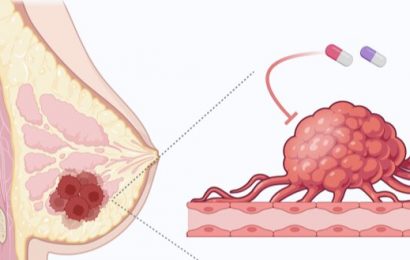
- Options for fertility treatments have expanded in recent years. One available option is in vitro fertilization (IVF), which may involve the use of intracytoplasmic sperm injection (ICSI).
- New research suggests that doctors should consider several lifestyle and health factors for people undergoing fertility treatments.
- Data from a systematic review and dose-response meta-analysis found that alcohol consumption was negatively associated with successful pregnancy using fertility treatments IVF and ICSI.
People who are seeking to start families have diverse fertility treatment options available.
However, individual lifestyle factors may impact the success of specific fertility treatment options. One area of interest is how caffeine and alcohol affect the fertility treatment success rate.
Data from a recent analysis published in Acta Obstetricia et Gynecologica Scandinavica shed some light on how alcohol and caffeine consumption may impact fertility treatments.
Researchers found that alcohol consumption was associated with lower success rates of fertility treatments among both men and women.
Expanding fertility treatment options
For people who experience infertility, there is a growing number of options for fertility treatments. Two options are in vitro fertilization (IVF) and an IVF procedure that uses intracytoplasmic sperm injection (ICSI).
IVF involves fertilizing an egg with sperm outside the woman’s body. Doctors then transfer the embryo into the uterus. Ideally, a healthy pregnancy and birth result may be achieved after an embryo successfully implants.
Couples may try IVF for various reasons, including problems with male and female fertility.
ICSI with IVF involves more specifically addressing male problems with fertility. In this method, specialists inject a single sperm into the inside of the egg. This technique could be used when a male partner produces too few sperm or when the sperm cannot penetrate the egg for successful fertilization.
Multiple factors can impact the success rates of IVF and ICSI fertility treatments. One area of interest is how lifestyle factors can influence these success rates.
For example, researchers are still working to understand how caffeine and alcohol consumption impact the success rates of IVF and ICSI.
Impact of caffeine and alcohol on fertility treatments
To expand knowledge on how caffeine and alcohol impact fertility treatment success rates, researchers recently completed a systematic review and dose-response meta-analysis.
The research included almost 27,000 people in the analysis, both men, women, and couples together.
Research studies eligible for the meta-analysis included 7 studies on caffeine consumption and 9 studies on alcohol consumption.
Researchers did not find a significant association between caffeine use and fertility treatment success rates. However, the findings on alcohol consumption were more significant. They found that alcohol use was negatively associated with fertility treatment success rates.
How much alcohol is too much?
For women specifically, researchers found that alcohol consumption of 84 grams a week or more was negatively associated with pregnancy after IVF treatment with ICSI.
Among men, they found that alcohol consumption of 84 grams a week or more was negatively associated with pregnancy and live birth rates after IVF treatment with ICSI.
There could be several reasons why alcohol appears to impact the success rates of fertility treatments.
Dr. Natalie Stentz, a double board certified OB-GYN and reproductive endocrinology and infertility specialist in Brighton, MA, not involved in the study, noted the following to Medical News Today:
“There have been several studies that have examined the impact of alcohol use on oocyte and sperm quality, with the underlining biologic theory that alcohol use contributes to an overproduction of reactive oxygen species, causing oxidative stress and thus negatively affecting fertility. In general, and consistent with ASRM [American Society for Reproductive Medicine] guidelines, while occasional alcohol use does not appear to have a substantial impact, regular alcohol use appears to have a dose-dependent [impact] upon egg and sperm quality.”
Study limitations and future areas for fertility research
Overall, the results of the new analysis indicate that alcohol use can negatively affect the success rates of IVF and ICSI. This is true for both male and female consumption of alcohol.
However, the researchers’ analysis also had several limitations.
Based on the nature of the research, the study can determine that alcohol causes unsuccessful IVF or ICSI. Other factors, such as additional lifestyle changes, could have impacted the studies’ outcomes.
Researchers also note that further studies should look at exposure time to alcohol, as this could impact fertility outcomes. Risk for confounding and not accounting for certain factors is possible, and some data relied on self-reporting from participants, which can increase the risk for errors.
There were also limitations based on the number and type of studies available.
Finally, the research did not take into account the specific sources of alcohol or caffeine, meaning that other components like artificial sweetener use or additives could have contributed to the observed results.
While research is limited about how much alcohol affects fertility, doctors can still offer recommendations based on available research. For example, non-study author Dr. Marcy F. Maguire, FACOG, physician partner and reproductive endocrinologist with Reproductive Medicine Associates in West Orange, NJ, not involved in the study, explained to MNT:
“While we are certain that alcoholism negatively impacts fetal development, it is less clear whether alcohol impacts fertility. Low (1–2 drinks per week) and moderate (3–13 drinks per week) alcohol intake likely have little impact on fertility. Heavy alcohol consumption (14 drinks per week or more) has been associated with decreased fertility in men and women. Men who drink excessively may have low testosterone levels and erectile dysfunction. High levels of alcohol intake are also associated with low sperm count.”
Though the current analysis may have some limitations, the findings add to a growing body of evidence on how lifestyle factors impact the success of fertility treatments.
Ultimately, anyone seeking fertility treatment should work closely with their doctor and other appropriate specialists to help improve their overall success rates.
Source: Read Full Article


